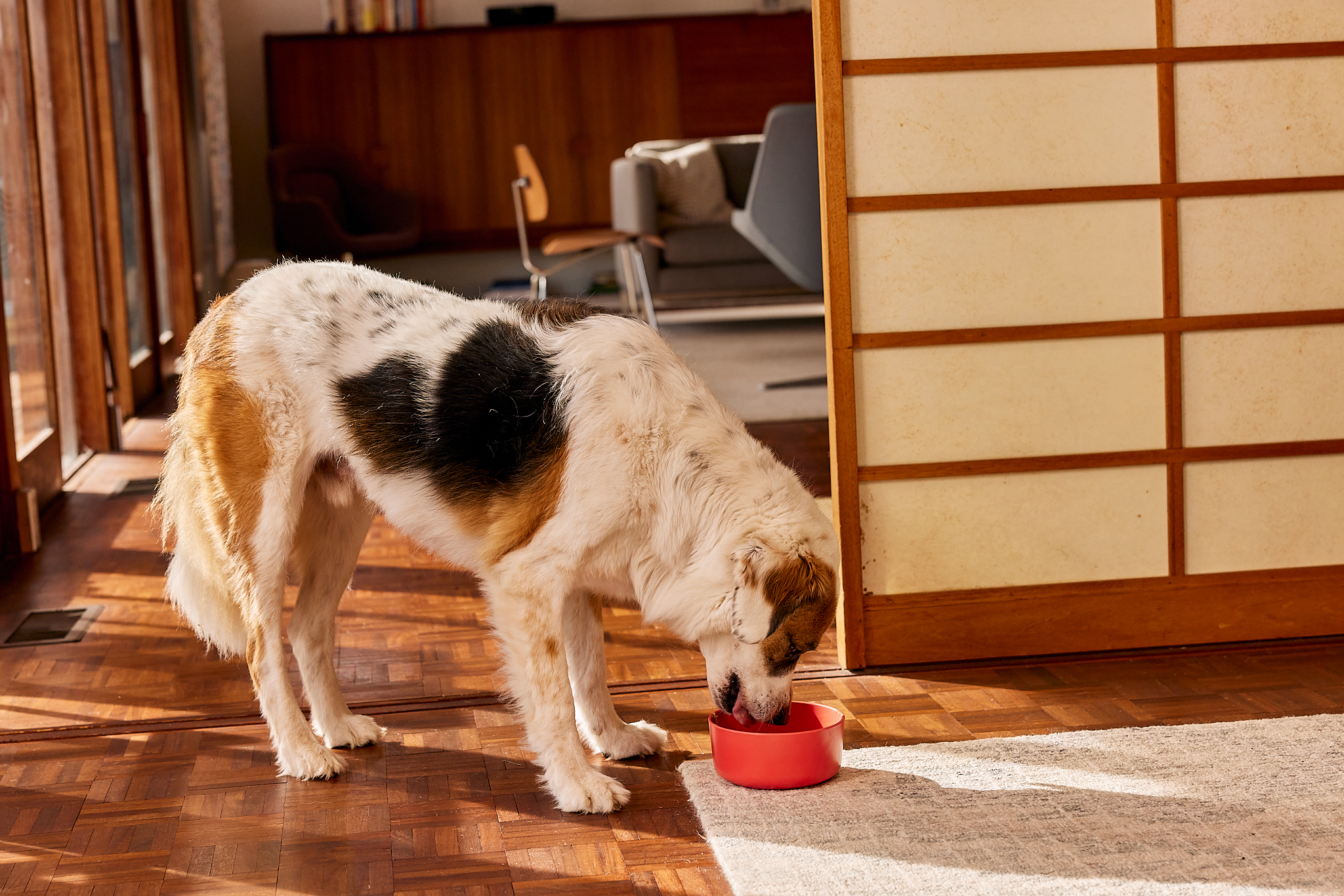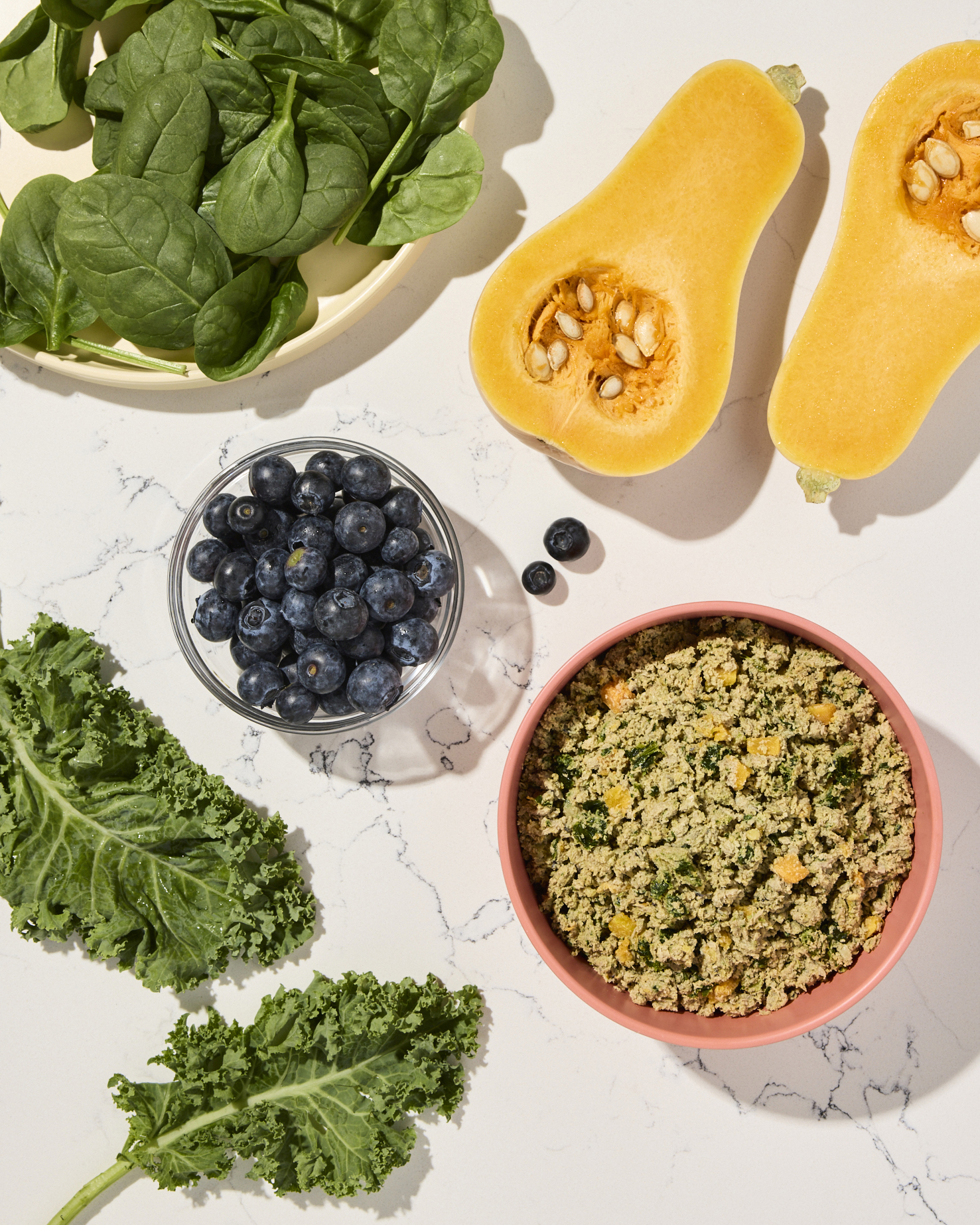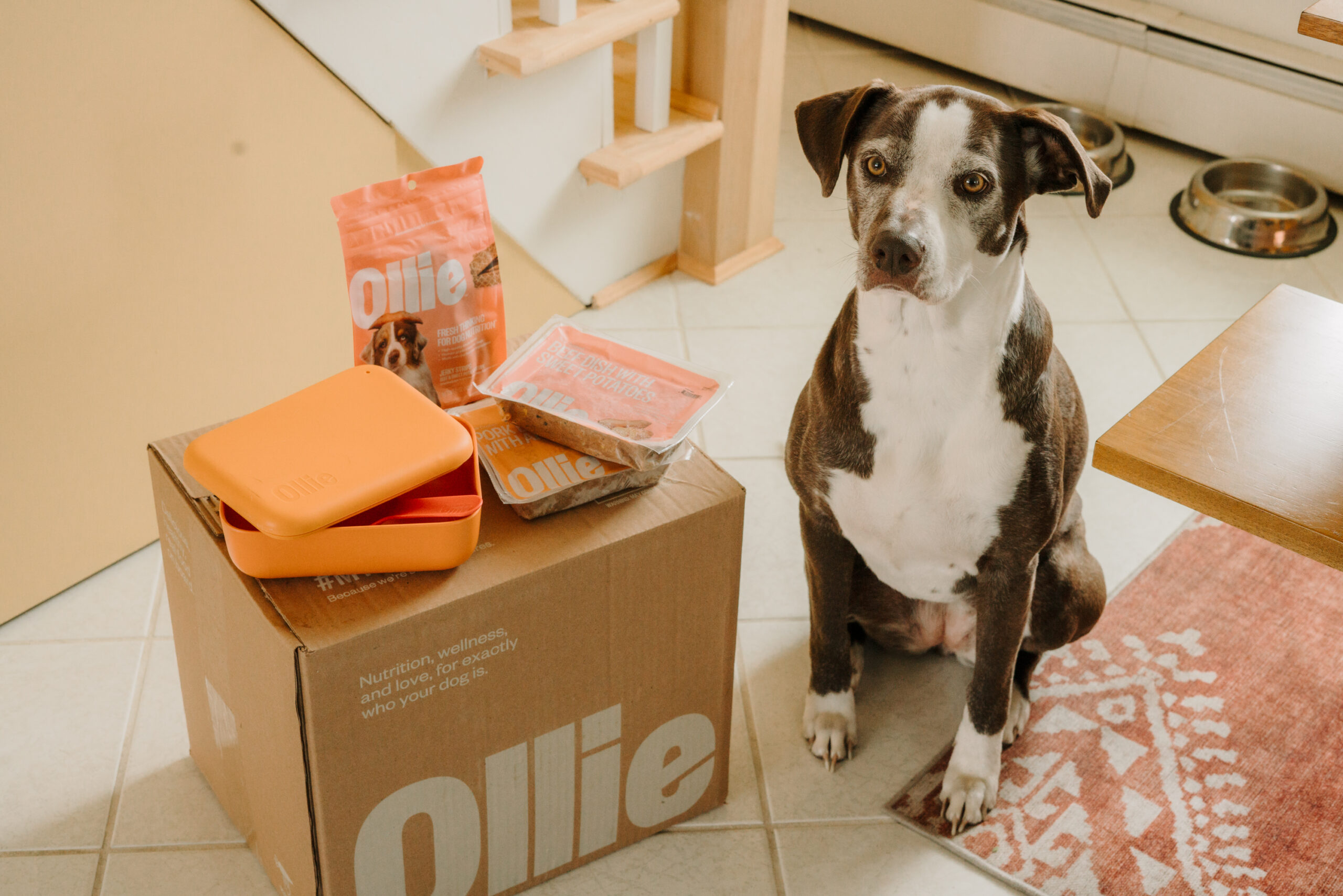Hey Ollie blog readers! We’re offering you an exclusive 60% OFF your starter box! Try now!
For humans, hot spots are those cool places we’re not staying at too late because we need to get home to our pups. For our dogs, these skin irritations (aka acute moist dermatitis) are not so cool. They can be itchy, painful, and cause some stressful scratching and gnawing. But there’s no reason why your pup has to suffer through them. We spoke with Dr. Babette Gladstein, a New York-based veterinarian, who answered our burning hot spot questions.
What are hot spots?
They’re skin irritations that can range from an itch to a sore, a hive, or even an allergy that your dog has licked, according to Dr. Gladstein. They occur when your dog’s natural bacteria overpopulates on his skin, and they tend to happen when he has an underperforming immune system. The red, moist skin lesions can occur anywhere on your dog’s body, from his paw to his face—and if you don’t treat them, they can spread, Dr. Gladstein says.
Why do dogs get hot spots?
It may seem like the hot spots appear mysteriously for no reason, but really it could be any number of issues that are causing the irritation: an injury, an allergy, a bug bite, matted hair—the hot spot gets exacerbated by your pup licking it. Sometimes, your dog can cause one simply by licking one area of his skin repeatedly because he’s stressed or bored.
Are certain breeds more likely to them?
Any dog can get a hot spot, but thick-coated breeds such as Rottweilers, German Shepherds and Golden Retrievers are more susceptible to them because their hair is more likely to get matted. Frequent grooming could help in these cases.
Can you prevent hot spots?
Not all hot spots are preventable, but a healthy diet can help, Dr. Gladstein says. “Those animals that we put on a very high quality food, or those that have meals cooked at home do much better, and we see fewer cases,” she explains, as processed food can cause hot spots for many dogs. Studies have shown that essential fatty acids, specifically Omega-3s, can also help with prevention, as they improve the skin barrier. Antioxidants like blueberries, green leafy vegetables and organ meats such as liver also help, as they work at the cellular level to improve skin quality. To boost your dog’s immune system, try Vitamin C as a whole foods source supplement.
How should you treat a hot spot?
First treat the underlying cause. Then remove the fur on, in and around the affected area or else it could get trapped in the wound and will be harder to heal. And place a cone around your dog’s head to stop him from licking. Applying Aloe Vera in its purest form to the sore can help, Dr. Gladstein says, and Calendula can lessen the itching. If you think the irritation was caused by a digestive problem, try adding kefir or fermented veggies to his diet, or adding a probiotic supplement (look for a high quality non-dairy capsule).
How can you tell if it’s serious?
If the hot spot starts oozing or if you notice that your dog has a chronic hot spot problem, then you should contact your vet. The vet will most likely prescribe oral antibiotics possibly followed by steroids in conjunction with a topical solution if the hot spot continues to expand or is infected.
The Ollie blog is devoted to helping pet parents lead healthier lives with their pups. If you want to learn more about our fresh, human-grade food, check out MyOllie.com.
Tagged As:

The nutrition your dog needs,
the food they want.

Enjoying our articles? Subscribe our Newsletters and get new articles directly to your inbox
You might also like
4 June 2025
5 MINS READ
How Can Fresh Dog Food Help with Weight Management?
Maintaining a healthy weight is one of the most important aspects of your dog’s overall health and longevity. Being overweight or underweight can result in health complications and conditions that…
by Ollie Pets
23 May 2025
5 MINS READ
Why Fresh Dog Food Makes Happier, Healthier Dogs That Live Longer
Every pup parent wants their dog to live a long, happy life, and the path to a healthier, happier dog starts with what’s in their bowl. Recent research and expert insights reveal that fresh dog …
by Ollie Pets
23 May 2025
8 MINS READ
Why Human-Grade Ingredients Matter for Dogs with Health Issues
For dogs with allergies, sensitive stomachs, or other health concerns, a higher quality of life starts with food made from higher quality ingredients. The right nutrition can make a significant di…
by Ollie Pets







